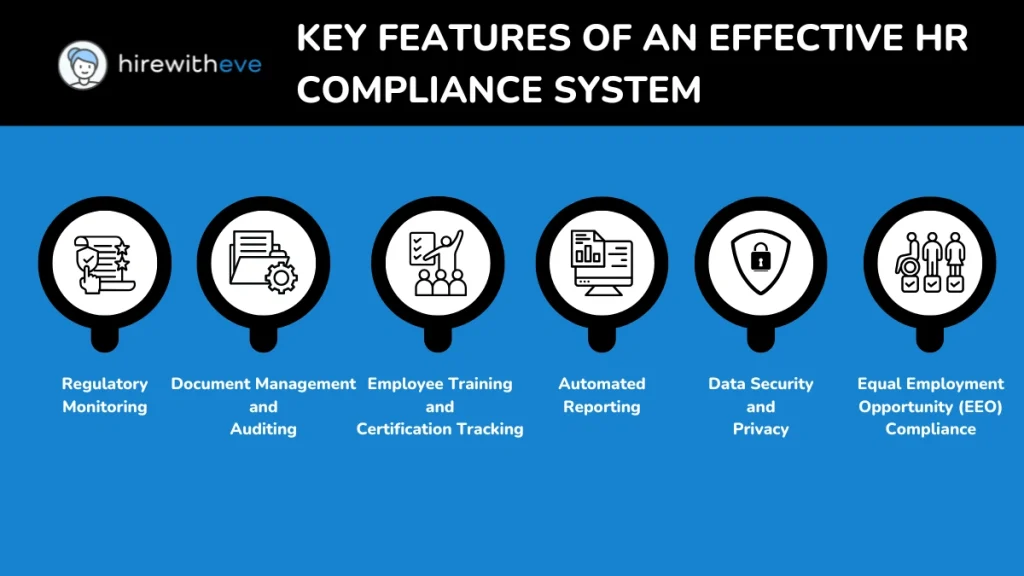What is the Importance of an HR Compliance System?

In today’s fast-paced business world, ensuring compliance in human resources is more important than ever. For talent acquisition specialists and HR managers, keeping up with the evolving regulations in hiring, employee management, and workplace safety can be a daunting task. This is where an HR compliance system becomes an essential tool. A robust HR compliance system not only helps organizations adhere to legal requirements but also promotes a fair and transparent work environment.
In this blog, we will dive deep into the importance of an HR compliance system, its key features, and how companies are utilizing this tool to streamline their HR processes.
The Critical Role of an HR Compliance System
An HR compliance system is the backbone of every HR department. It ensures that companies stay aligned with federal, state, and local laws governing employment. Compliance covers a broad spectrum, from adhering to equal employment opportunities to managing employee benefits and payroll taxes. Without a proper HR compliance system in place, organizations can face hefty fines, lawsuits, or damage to their reputation.
For talent acquisition specialists, navigating compliance issues during the recruitment process is particularly challenging. Hiring managers must ensure that every step of the recruitment journey — from job posting and candidate evaluation to onboarding — is done within the bounds of employment law. An HR compliance system automates this process, ensuring that the organization is following all necessary protocols to avoid legal risks.
The growing complexity of employment regulations due to changes in government policies or societal expectations, such as diversity and inclusion initiatives, makes it even more critical for HR professionals to have a reliable compliance system in place. This system allows HR managers to focus on finding the right talent without the constant worry of falling out of compliance.
What are the Key Features of an Effective HR Compliance System?
When considering an HR compliance system, there are several features that HR managers should look for to ensure the system meets the company’s needs.
Let’s explore these key elements:

Regulatory Monitoring
An effective HR compliance system continuously monitors regulatory changes and updates its processes accordingly. This feature helps HR teams stay ahead of the curve and maintain compliance without the need for manual updates.
Document Management and Auditing
With so much documentation involved in HR processes, a robust HR compliance system should have a comprehensive document management system. It ensures that important records, such as employee contracts, certifications, and benefits documentation, are properly stored and easily retrievable during audits.
Employee Training and Certification Tracking
Compliance often requires employees to complete specific training or obtain certifications. An HR compliance system can track these certifications and send automatic reminders to employees or HR managers when renewals are due. This ensures that the company meets regulatory training requirements and avoids penalties.
Automated Reporting
Reporting is a key aspect of compliance, and an HR compliance system should provide detailed reports on compliance status. These reports help identify any gaps in the company’s compliance efforts and offer a roadmap for addressing them.
Data Security and Privacy
The system should ensure that sensitive employee data is protected. As data privacy regulations become stricter, an HR compliance system should have robust security features to prevent data breaches and ensure compliance with privacy laws like GDPR or CCPA.
Equal Employment Opportunity (EEO) Compliance
One of the critical aspects of recruitment is maintaining EEO compliance. A well-designed HR compliance system helps track hiring practices to ensure that no discrimination occurs during recruitment, onboarding, or promotions.
Surveys and Research on HR Compliance
According to a survey conducted by the Society for Human Resource Management (SHRM), 40% of businesses reported that they had been penalized for non-compliance in the last five years. This staggering number highlights the need for an effective HR compliance system to mitigate risks.
Another study from LinkedIn survey found that companies using automated compliance systems were 60% less likely to face penalties or lawsuits due to HR mismanagement. These findings underline the importance of integrating a reliable HR compliance system to handle the complexities of modern employment laws and standards.
Further studies show that compliance issues in recruitment are on the rise. For example, many businesses are struggling to meet the compliance requirements of diversity hiring mandates, making an HR compliance system that offers diversity tracking a valuable tool for HR professionals.
Conclusion
While compliance is essential in every HR department, managing it manually is inefficient and prone to error. This is where HirewithEve.ai steps in to make the process simpler and more effective. The platform not only supports skills-based hiring and remote recruitment but also integrates seamlessly with your existing HR systems to ensure compliance at every step of the hiring process.
With real-time monitoring of regulatory changes, document management, and automated reporting, HirewithEve.ai helps talent acquisition specialists and HR managers stay compliant effortlessly. Additionally, the platform ensures fair hiring practices and helps companies meet diversity and inclusion goals.
In a world where regulations are constantly changing, an HR compliance system is no longer a luxury — it’s a necessity. With HirewithEve.ai, you can focus on finding the best talent while ensuring your organization remains compliant, reducing legal risks, and fostering a fair work environment.
